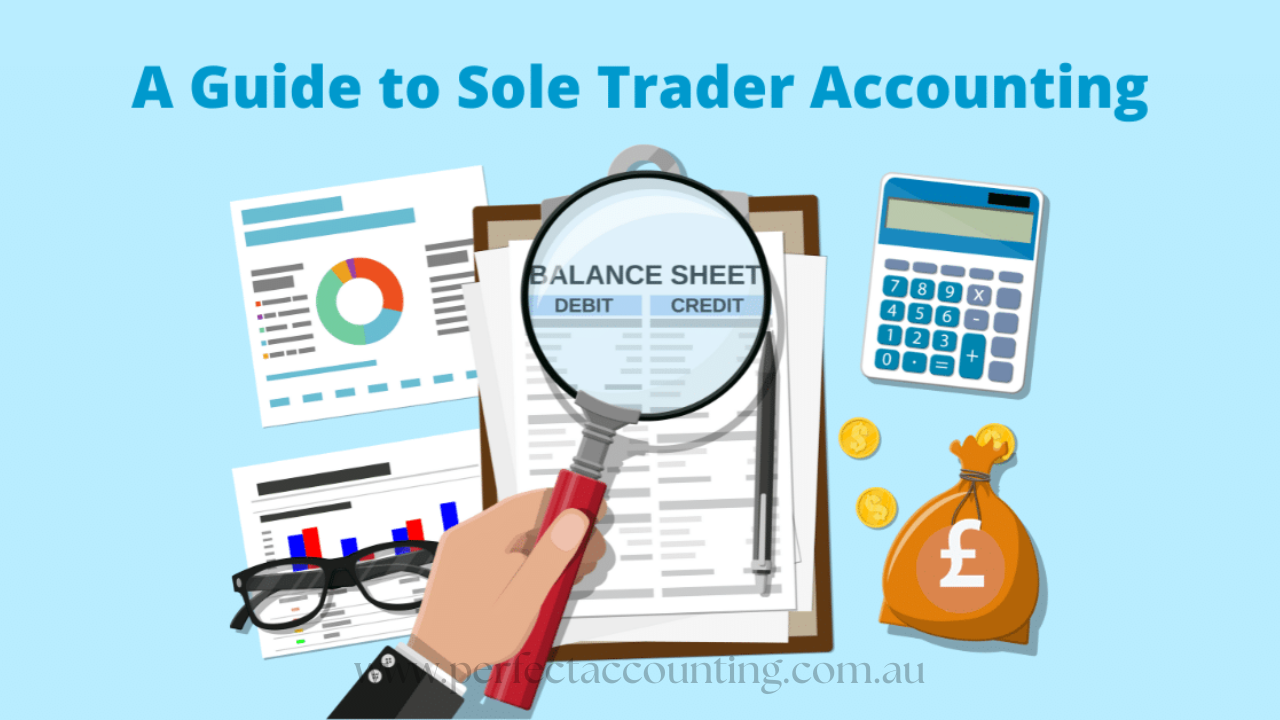Starting your own business as a sole trader can be one of the most liberating decisions you’ll ever make. You’re the boss, the decision-maker, and the driving force behind your own success. But, as exciting as that sounds, there’s one part that tends to trip people up—bookkeeping.
If the word bookkeeping makes you feel overwhelmed or confused, you’re not alone. But here’s the good news: keeping your financial records in order doesn’t have to be difficult. With the right approach, tools, and maybe even some expert help, sole trader bookkeeping can be a breeze.
So let’s break it down in plain English, step by step.
Why Bookkeeping Matters (More Than You Think)
Picture this: Sarah runs a small online store selling handmade candles. She’s passionate about her craft, has steady orders, and customers love her. But when tax season rolls around, Sarah realises she hasn’t kept track of her income and expenses properly. She’s left scrambling through emails, receipts, and bank statements.
Now imagine Sarah had a simple system for bookkeeping for sole traders—she’d be calm, collected, and possibly even saving on taxes.
Good bookkeeping isn’t just about taxes. It helps you:
- Understand your business performance
- Make smarter decisions
- Get paid on time
- Stay legally compliant
- Reduce stress and confusion
What is a Sole Trader?
A sole trader is a person who runs a business on their own. It’s the simplest type of business structure in Australia (and many other countries). As a sole trader, you and your business are legally the same entity, which means you’re personally responsible for any debts and obligations.
Step-by-Step Guide to Sole Trader Bookkeeping
1. Open a Separate Business Bank Account
This is a crucial first step. Mixing personal and business expenses is a recipe for confusion. Having a dedicated business bank account will help you easily track income and spending.
2. Track Every Transaction
Record every dollar that comes in and out of your business. This includes:
- Income from clients or sales
- Expenses like supplies, subscriptions, travel, or software
- GST if you’re registered
- Invoices issued and payments received
You can use a spreadsheet, a notebook (if you’re old school), or accounting software like Xero, MYOB, or QuickBooks.
3. Save Your Receipts and Invoices
Keep digital or physical copies of all your receipts and invoices. They’ll come in handy for tax deductions and if the ATO ever audits you.
Tip: Use apps like Dext or Hubdoc to scan and store receipts automatically.
4. Set Aside Money for Tax
As a sole trader, tax isn’t automatically deducted from your income. So, it’s wise to save around 25-30% of what you earn for tax time. Also, consider GST, BAS, and superannuation if you’re paying yourself regularly.
5. Reconcile Your Accounts Monthly
Make it a habit to compare your records with your bank statements every month. This is called bank reconciliation. It helps catch mistakes or missing transactions.
6. Understand What You Can Claim
Did you know you can claim business-related costs like a portion of your home internet, mobile phone, and even your car (if used for work)?
Understanding deductions for sole traders could save you hundreds—if not thousands—of dollars.
7. Consider Hiring an Expert
Yes, you can do it yourself. But unless you love numbers, why not hand it over to someone who does?
That’s where Perfect Accounting PTY Ltd comes in.
Why Choose Perfect Accounting PTY Ltd?
At Perfect Accounting, they understand what it means to be a small business owner. Their team of expert accounting agents specialises in helping sole traders manage their books with ease and confidence. Whether you’re just starting out or already running a full-time business, they’ll tailor a plan to suit your needs.
Here’s what you get:
- Personalised bookkeeping and tax support
- Up-to-date, accurate financial records
- Hassle-free BAS and GST lodgments
- Peace of mind at tax time
- Affordable packages for all budgets
And the best part? You stay in control of your business while they take care of the numbers.
Visit Perfect Accounting PTY Ltd to book your free consultation.
Real Talk: Bookkeeping Doesn’t Have to Be a Nightmare
Let me share a quick story. Jake, a freelance graphic designer in Sydney, avoided doing his books for six months. When he finally looked into it, he realised he had overpaid on business tools and missed claiming legitimate expenses. After signing up with Perfect Accounting, not only did he get his finances in order, but he also got a refund from the ATO.
Moral of the story? Don’t wait until it’s too late. A little attention today saves a lot of headaches tomorrow.
Final Thoughts
Being a sole trader is exciting, but it comes with responsibilities. The good news is that bookkeeping doesn’t have to be one of the hard parts. With the right approach, some good habits, and possibly a bit of professional help, you can keep your business on track and set yourself up for long-term success.
And if you’re ready to stop stressing about your numbers?
Perfect Accounting PTY Ltd is just a click away.
Quick Recap Checklist
✅ Open a business bank account
✅ Track income and expenses
✅ Save all receipts and invoices
✅ Set money aside for taxes
✅ Reconcile your accounts monthly
✅ Know your tax deductions
✅ Talk to a bookkeeping expert if needed







